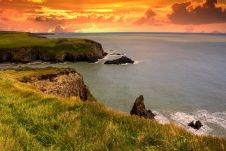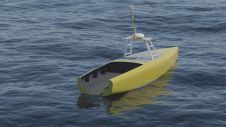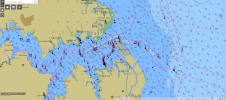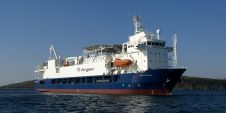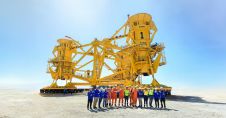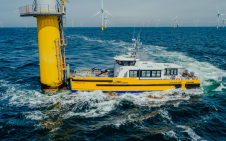Certification for Canadian Hydrographers
The Association of Canada Lands Surveyors (ACLS) is a national multidisciplinary organisation representing geomatics professionals engaged in hydrography, geodesy, remote sensing, GIS, data management and cadastral surveying. In co-operation with the Canadian Hydrographic Association, it has proposed a national occupational certification programme for hydrographic surveyors. Two certification models are possible. One is professionally orientated and based on the requirements for obtaining a Canada Lands Surveyor (CLS) commission; the other is technically orientated, which would allow for certification to be granted outside of a prerequisite CLS Commission. Both models would require specific academic qualifications and an attestation of experience pertaining to the field of hydrography. There are several reasons driving our model. These include promoting the need for accredited hydrographic training courses, and encouraging Canadian educational institutions to seek the FIG/IHO/ICA, International Advisory Board (IAB) accreditation. There is also the affirmation of our expert status as Canadian surveyors and our expertise in offshore projects both at home and overseas. A further impetus is the wish to provide measurable qualification criteria (professional and technical) for hydrographic surveyors.
While Canadian colleges and universities have for years been offering hydrographic curriculum in line with IAB standards, none have for some time offered officially accredited hydrographic training. Our Task Force recognises an opportunity here for the surveying profession to help promote the demand for accredited training through a certification model which values and promotes the academic merits of the IAB-accredited training. We further believe that the surveying profession is responsible for maintaining public perception of and trust in the qualifications implied by the title of Hydrographic Surveyor. Canada aims to be a leader in hydrography, and the demand for hydrographers is currently at its highest for twenty years. Canadian schools are helping meet this demand and we believe this certification model will help keep us on par with other nations and organisations that have developed their own certification models for hydrographers.
The Task Force recently conducted an information survey to assist us in better understanding the needs of the Canadian hydrographic community regarding hydrographic competencies. The results indicated that in terms of those qualifications in greatest demand, practical job experience rated highest; rated second was a technical diploma and then a university degree. This data tends to fit with our certification model, where experience also rates high and academic qualifications alone do not make the surveyor. It also echoes some of the concerns I have heard lately regarding a lack of ‘Cat B’ (technically competent) personnel available to serve the needs of industry. Whilst an employer is obviously aware of, and can set the bar for, the qualifications he or she is seeking when recruiting, our survey indicated a belief on the part of our respondents that the surveying profession should regulate occupational qualifications in the field of surveying and mapping. It also indicated that an accreditation panel representing the interests of both government and industry would help serve this purpose. This is consistent with our motivation and course of action thus far.

Value staying current with hydrography?
Stay on the map with our expertly curated newsletters.
We provide educational insights, industry updates, and inspiring stories from the world of hydrography to help you learn, grow, and navigate your field with confidence. Don't miss out - subscribe today and ensure you're always informed, educated, and inspired by the latest in hydrographic technology and research.
Choose your newsletter(s)

